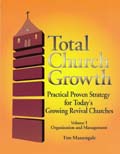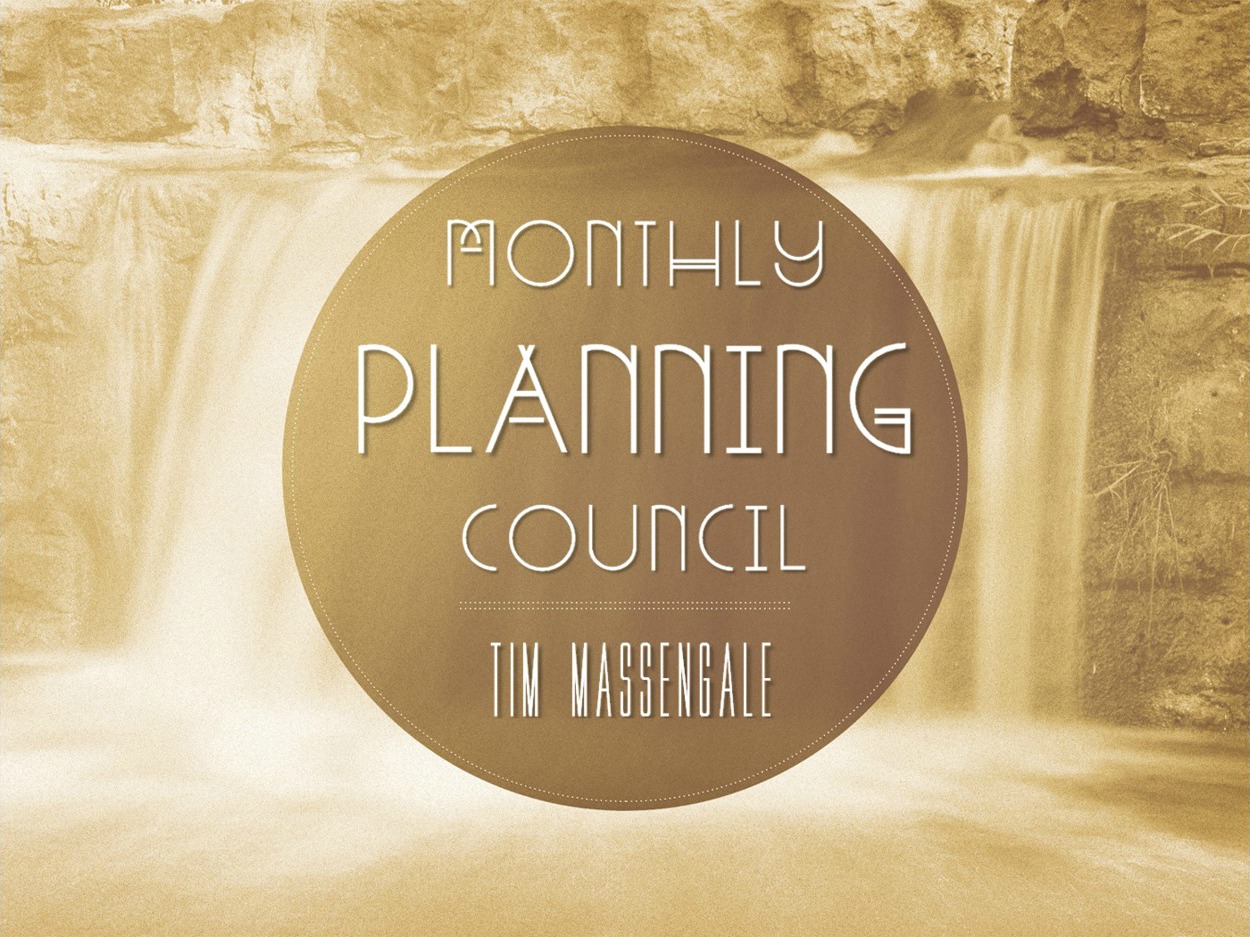By Tim Massengale

Most people credit Henry Ford with inventing the automobile. The truth is he didn’t. Although he held many patents on various automotive mechanisms, the invention of the first self-powered carriage is credited to Nicolas Cugnot of France in 1771.
But history does credit Henry Ford with being a master of effective planning. His idea for taking the raw materials at one end of a factory and turning them into a finished automobile at the other end was nothing short of genius. His assembly-line production completely revolutionized the auto industry by greatly reducing the time required to assemble a car. It allowed him to produce cars quickly and efficiently; so efficiently that it considerably lowered the cost. He decided to pass on this savings to his customers, and in 1915 dropped the price of the Model T from $850 to $290. That year alone he sold 1 million cars and soon after became one of the wealthiest men in the country.
Thomas Edison, who painstakingly worked to produce the first successful incandescent light bulb also believed in effective planning. Said he, “Good fortune is what happens when opportunity meets with good planning.” A common business quote puts it even more bluntly: “To fail to plan is to plan to fail.”
Jesus said, “Suppose one of you wants to build a tower. Will he not first sit down and estimate the cost to see if he has enough money to complete it? For if he lays the foundation and is not able to finish it, everyone who sees it will ridicule him, saying, ‘This fellow began to build and was not able to finish.’” (Luke 14:28-30 NIV).
One of the biggest secrets of successful church growth lies in the ability of a pastor to plan effectively with his ministry leaders. I’m continually surprised at how many churches do not take full advantage of this proven principle.
In previous articles I outlined two simple, but important aspects of effective church growth planning: First, schedule an Annual Planning Retreat. Get away at least once a year with your key ministry leaders for an over-night, idea-intensive brainstorming session to solve problems and plan the coming year. Second, ask each ministry leader to hand in a Departmental One-year Plan. This is a simple written outline of their departmental plans and goals for the coming year. Both these steps go a long way in helping your leaders stay focused on their primary goal and purpose.
But now we come to the third, and in my opinion, the most important step in church planning: The Monthly Planning Council. Few things will have a more positive effect upon your growth than will this simple monthly meeting. It provides the means of accomplishing one of the most common weaknesses in church planning: the tendency to not follow-through once plans have been made.
The Monthly Planning Council helps us to understand what has been done, what is being done now, and what should be done in the near future. This meeting binds department members together as a team. It allows them to share problems and get helpful support in solving those problems from other team members. It improves communication between departments and shows how the various parts of the church organization interrelate and benefit one another. It keeps the pastor informed as to how projects are progressing and provides accountability to the directors’ responsibilities. It utilizes the pastors time more effectively by allowing him to take care of most administrative matters at one time rather than having to contact a dozen people individually. And finally, it provides the department heads with target dates, specific assignments to carry out, evaluation of progress, and finalizes the what, how, when, and where of all activities on the church calendar. In short, it’s difficult to see how that any church of any size can function effectively without time and effort being placed upon this monthly group planning night.
“Two can accomplish more than twice as much as one, for the results can be much better. If one falls, the other pulls him up; but if a man falls when he is alone, he’s in trouble. And one standing alone can be attacked and defeated, but two can stand back-to-back and conquer; three is even better, for a triple braided cord is not easily broken.” (Ecclesiastes 4:9, 12, LB)
How Often Should You Meet
In sports we see many examples of the need to plan. Often this involves a “game plan.” A game plan is simply a series of steps which the team must follow in order to accomplish its goal of winning the game. In fact, most winning teams win because they plan to win. Losing teams are often the team that had no game plan, or a poor plan at best. Failing to plan to win is the same as planning to lose.
How often should a pastor plan with his ministry leadership? If a church is large enough to have several full-time individuals such as secretaries, assistants, youth director, music director, and so on, a pastor often meets weekly to organize the weeks activities. But few churches are of sufficient size to have this kind of assistance. The majority, probably over 90%, are fortunate if the pastor himself is full time. So, for the most part, a pastor will be planning with a volunteer staff of department heads. Some pastors have tried to meet with their volunteer department directors every week, taking an off-church night, or meeting before service. In only a few cases has it ever worked for long. Taking yet another week night, on top of everything else, soon becomes burdensome. Before service meetings are also difficult because of limited time and continual interruptions. Then, too, the pastor’s mind is on the service, not his departments and their needs. So weekly planning sessions rarely, if ever, work for a volunteer staff.
Some pastors have tried to have departmental meetings only once per quarter. Several problems arise with this approach. Meetings are too long because too much is happening. And because of limited time, little or no actual planning is done and the meeting becomes nothing more then a calendar making session. Directors then loose the “team spirit” because too little time is spent together. Quarterly sessions can also become a time of intense competition for limited dates, facilities, and manpower within the church. The reasons could go on, but suffice it to say: Quarterly departmental councils leave much to be desired.
Than what does work? The best and most successful approach has been the Monthly Planning Council. This once per month meeting is utilized for training, reporting, planning, and brainstorming on all facets of the church. It’s not held so often that it becomes a burden. It’s not held so seldom that it becomes a lengthy marathon session. The monthly meeting on an off-service night seems to be the best answer for nearly every situation.
Who Should Come
The Monthly Council is attended by all primary department heads. This could be as many as twelve individuals. This would include Sunday School, Outreach, Ladies Ministries, Music, Youth, New Convert Care, Men’s Ministry, Home Bible Study, Visitor Follow-up, Bus Ministry, and so on. Spouses are not required to come, although if they wish to attend, they may. There is a danger, though, of getting too many people involved in the Monthly Council. The more people there are, the longer the discussion tends to be, and the greater difficulty you will have in arriving at any group agreement. The church secretary, or another appointed individual should always come for the purpose of taking notes and minutes. And, of course, the pastor must be there. Departmental planning without the pastor is practically impossible. A pastor must give the Monthly Planning Council his highest priority. It will save him an abundance of time and frustration later on.
Monthly Council Success.
In the corporate world, business meetings are an important component of success. Entire books are devoted to this subject. The business of the church is no less important, for quite literally, eternal souls are at stake. Here are some quick insights into monthly council success.
First, be sure to provide a typed agenda at each meeting. If desired, provide time for group prayer and leadership training. Each department should be listed and the topics of discussion should be listed. Discussion topics often come directly from the departments One-Year Plan that they handed in after the Annual Planning Retreat. Allot adequate time for group discussion and brainstorming if needed.
The Monthly Council is usually held at the church. A Sunday School room is fine. Some pastors have offices that are large enough. Others prefer the fellowship hall. But regardless where you meet, it is best to sit around a single, long, “board-room style” table. This gives them a surface to write on and allows good eye contact with each other as well as the pastor, who sits at the head. Occasionally it is nice to meet at a restaurant (in a private area) or in a home. This adds a different atmosphere that will break up the “rut” that can sometimes develop. If you make the Monthly Council’s special, you will have little problem with attendance.
You may wish to provide soft drinks and snacks during the meeting. Don’t make the meeting too formal. It is amazing how a cup of coffee and some positive conversation can affect the entire tone of the evening. Directors can rarely meet for over an hour without the need for laughter and the occasional joke. But in the midst of the fun, the pastor must not allow the discussion to stall. Discipline yourself to push the meeting to a specified time conclusion.
As you come to each department, the pastor should have the director quickly read his or her monthly report. The director need not read the entire page, but rather the main totals or results. If the pastor has any questions about the numbers or goals, he should bring them up at this time.
As each agenda topic discussed, detailed planning should be done. You should ask the director questions such as ‘what supplies or equipment is needed? What is the location and needed facilities? Who will be involved or attend? Who will be in charge? What time, how long, and what date? How much will this cost? Will any training be needed? Will this conflict with any other department or plans?’ And so on. Many details could be covered and discussed. This is the purpose of the Monthly Council, to implement the ideas and plans of your Annual Planning Retreat.
At the end of the meeting, the pastor (or secretary) should quickly read over the notes of the meeting to emphasize “what has been accomplished.” By doing this, it accents the importance of the Monthly Council and underscores that their time that night has been well spent. The directors will leave the meeting feeling good about the work of God and their involvement in it.
The growth and success of your departments, as well as your church, will be determined by the effectiveness of these monthly councils. Your monthly councils will also determine whether the activities, outreach events, and special programs of your church operate “decently and in order” or “chaotic and confused.” Truly, the Lord’s work deserves our very best effort.
In Conclusion
Solomon, a man truly blessed with wisdom, wrote “Where no counsel is, the people fall; but in the multitude of counselors there is safety” (Proverbs 11:14, NIV). He again wrote, “Without counsel, purposes are disappointed: but in the multitude of counselors they are established” (Proverbs 20:18, NIV). It was by failing to listen to his counselors – and instead, listening to his heathen wives – that led Solomon to his own downfall.
By bringing the key leaders together, a pastor builds a team spirit into his directors. He also improves communication, which is often described as the main problem in poor management. And by helping his directors solve their problems, the pastor motivates them to accomplish more, and thereby see more souls born into the Kingdom of God.





1 thought on “Monthly Planning Council (Entire Article)”
Comments are closed.